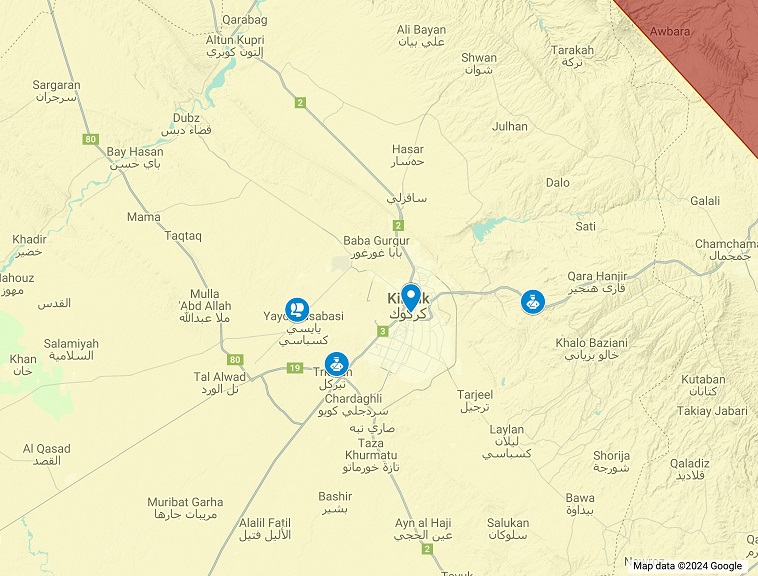1.1K
A biweekly brief of events and news occurred in the disputed territories.
Kirkuk
- The Integrity Commission Court has halted all legal proceedings by Kirkuk’s Department of Real Estate regarding the transfer of ownership of disputed lands in Topzawa between the Defense Ministry and Kurdish and Turkmen farmers. This decision follows a lawsuit filed by the Ministry of Defense against Kirkuk’s Real Estate Department, which sought to alter the titles of thousands of acres of farmland originally owned by Kurds and Turkmen. These lands were confiscated by the former Iraqi regime and subsequently allocated to the Ministry of Defense for the construction of officer apartment complexes. The court’s ruling effectively thwarted the farmers’ attempts to reclaim their lands, signaling ongoing disputes. Despite the Iraqi government’s efforts to annul the former regime’s decisions, hundreds of thousands of acres of farmland belonging to Kurds remain confiscated. Although dated June 8, 2023, the court memorandum was only recently disclosed. Additionally, the Ministry of Defense intends to construct new complexes in the Chiman district, a predominantly Kurdish area. On May 8, several Kurdish farms and homes in the district were demolished, purportedly because the lands were owned by the ministry.
- On April 28, the Iraqi military deployed a large force in two Kurdish villages near the Perdi and Sargaran districts, preventing Kurdish farmers from harvesting their crops. The following day, two Kurdish farmers were arrested by Iraqi forces on grounds of the farmland’s ownership being claimed by Arab settlers. Tensions escalated until May 8, when several settlers, under the protection of Iraqi forces, staged protests against native Kurds in five villages. This led to a counter Kurdish demonstration denouncing the government’s persistent Arabization policies. Similar incidents occurred in the Daquq district, where settlers seized 8,000 acres of Kurdish farmland, obstructing Kurdish farmers from harvesting their crops.
- An explosion in an oil pipeline forced locals to evacuate their homes for the second time in four months due to the foul odor. The pipeline, located in Qizliar, experienced the issue attributed to its aging. However, it’s noteworthy that oil pipe smuggling by drilling into pipelines for illegal trade is a common occurrence in the province.
- On May 2, the National Security Agency announced the arrest of several ISIS (Da’esh) terrorists associated with the organization’s “Office of Prisoners and Martyrs Affairs for the State of Iraq.” The arrests were made based on intelligence information, underscoring the continued presence of Da’esh terrorists in disputed territories since October 16, 2017.
- Despite six months passing since the provincial elections, Kirkuk’s political parties have yet to reach an agreement on the formation of the local administration. The Turkmen and Arabs advocate for a rotational governorship, with Kurds and Arabs serving two-year terms each and a Turkmen leading the provincial council, but Kurdish factions remain divided on this arrangement. The provincial elections, held in December 2023 after 18 years of disputes. At the same time, the Independent High Electoral Commission (IHEC) initiated a voter registration review process following a Supreme Court ruling favoring the Turkmen Front’s lawsuit against the Kurdish population. Notably, a significant portion of Kurdish voters comprises displaced families who returned to Kirkuk after 2003, having been expelled from their province as part of the former regime’s Arabization policy.

